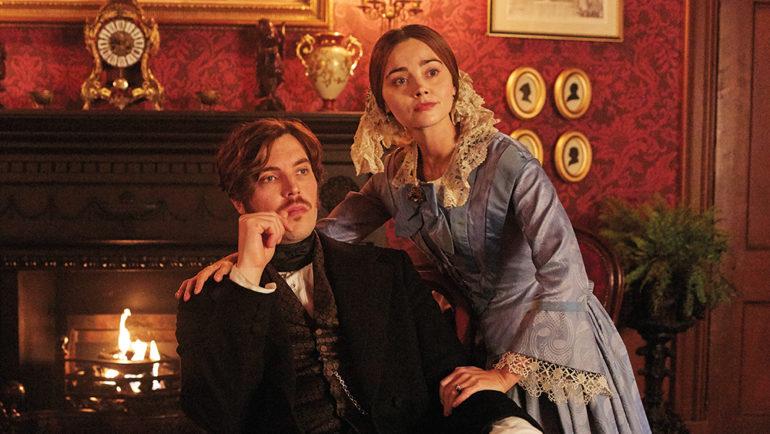Boom in TV Period Dramas Raises Demand for History Consultants
By Randee Dawn
LOS ANGELES (Variety.com) – Ask production designer Maria Djurkovic how she researched period-accurate sets for the late 1970s-set espionage miniseries “The Little Drummer Girl,” which airs on AMC, and she answers: books, the internet, some personal experience. But then she brings up her secret weapon: Philip Clark.
“Phil is something like a detective,” she says. “He can respond to a very specific brief, and my inbox will soon be filled with thousands of images that are appropriate. He has a skill of tracking everything down.”
It may take a village to shoot a TV series, but historically based shows such as “Drummer Girl,” Starz’s “The Spanish Princess,” FX’s “Fosse/Verdon,” History’s “Vikings,” Amazon’s “” and Masterpiece’s “Victoria” rarely get very far without some added know-how.
It’s these outside experts who make the shows historically believable. But even though their work is invaluable, their compensation is as varied as the shows themselves — and clouded by blurry distinctions between the rights of authors and the public domain.
“We’re in this golden age of television, and tons of content is being bought up — and often the people with the content are authors,” says Hallie Rubenhold, historical consultant for 18th century-set drama “Harlots.” Her 2005 book “Covent Garden Ladies” inspired the Hulu series, but it took legal wrangling to get the tome credited as the show’s inspiration.
“There’s this blurry divide between what is history in the public domain and what has been written by someone in a book,” says Rubenhold. “There are smaller corners of history which very little is written about. … That’s when producers have to be a lot more cautious” about crediting researchers and authors.
When it comes to using experts, however, heads of below-the-line departments tend to take advice in measured doses. “Vikings” associate producer, archaeologist and historical consultant Justin Pollard considers his job “complementary” to that of the . “People assume that when you’re a historical consultant you tell the crafts department what to do, and that’s not the case,” he says. “Every department does their own research. … I translate academic work into something that can be measured, understood, budgeted and built.”
Phoebe De Gaye, costume designer on “The Spanish Princess,” says she’s “never relied on one person or consultant” for her research. “For me, it’s this magpie thing where you’re getting inspiration from various sources.” She does call on the show’s consultant for specialty know-how — such as court protocol: for example, who should be present at a coronation.
Over at “Victoria,” production designer Stephen Daly says he also does much of his own research, but has worked with specialists ranging from food historians to animal handlers familiar with breeds of royal dogs. “Knowing what cutlery would be used can be very important for props,” he says. “It’s good to have historians on set on the day [of shooting] so they can talk us through these things.”
The distinction between when an expert is simply answering a few questions and when that same person needs to be compensated for his or her time and expertise isn’t always clear. “It’s hard to draw the line,” says Rubenhold. “It would be wonderful if we had [more guidance] about what exactly the job is.”
In the U.K., a consultancy called Past Preservers is trying to do just that. The company reps around 1,200 academics and TV contributors, ensuring that they don’t work for free. Founder and former archaeologist Nigel J. Hetherington notes that below-the-line artisans tend to be much more organized about compensating experts for research.
“They do have a system set up,” he says. “If they talk to X, that person is recorded for the credits — it seems more automated. But final credits are normally decided by the network, and some things can genuinely get overlooked.”
“The Man in the High Castle” production designer Drew Boughton says he has to alert producers every time he contacts an expert “because then production gets a bill — and every hour counts.”
Yet not every show’s artisans require paid consultants; “” choreographers Andy Blankenbuehler and Susan Misner largely had the archival resources of The Verdon Fosse Legacy, a website run by Fosse’s daughter Nicole, who is a co-executive producer/creative consultant with the series. “This project was a real joint effort,” says Misner. “I get to see what Bob and Gwen were wearing in 1962 for [a particular] piece, which is a huge helper.”
And some artisans eschew outside helpers altogether. Terry Dresbach, costume designer on ’s “Outlander,” says she hasn’t used any official historical consultants. “I don’t hire researchers or count on research,” she says. “I define that as my job.”
Increasingly, though, the historical consultant is an essential member of any TV production village. “I love having a base of people I work with a lot,” says “Victoria’s” Daly. “I know them personally, and they know what they’re talking about. I tell other people I know everything — but I don’t.”

